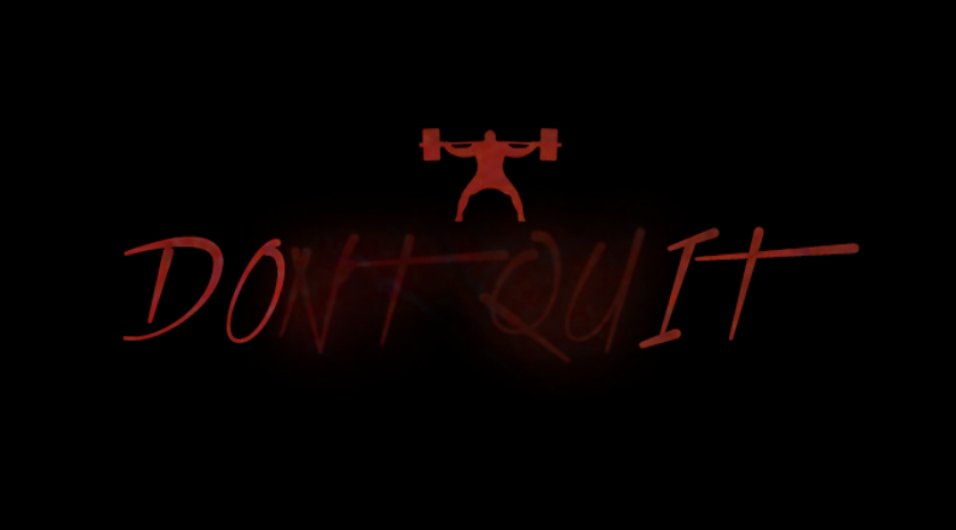
Because I have trained competitors online for so long (since 2001), I will have that one competitor every year who hasn't competed more than a couple of times but has this bizarre arrogance about them—as if they have already accomplished so much without accomplishing anything.
I am pretty damn good with knowing if a client is a good fit or not. I have come to this after training as many people as I have for as long as I have. However, even I am wrong (on occasion) and end up regretting it. I will always see a prep through and give it 100%, though. It's just the right thing to do. I have been paid and my reputation/brand is on the line, so I will do whatever I can to have that competitor in his or her best shape whether I want to throat-punch them or not.
This coach log isn't about how I feel, though, it's more about how—as a newbie—you can make for a better relationship and outcome for your prep by not doing newbie things. And make no mistake, I have worked with plenty of newbies and I will continue to work with them. The vast majority are great to work with and are very grateful for your attention and expertise. I'm not talking about them. I'm talking about the newbies who know just enough to be a giant pain in the ass and think they are better competitors than they are. Here are a few things that newbies can focus on to not be that giant pain in the ass.
1. Be Realistic
There is absolutely nothing wrong with wanting to get a pro card—nothing. What IS wrong is when you don't have obviously superior genetics, do not understand what it takes to get to that level, and think you are going to get a pro card after two shows. Can it happen? Yes. However, it happens for every 1 in 10,000 competitors (arbitrary number to make my point; don't make me back up that stat). The funny thing is that at least in MY experience, that 1 in 10,000 competitor RARELY IF EVER thinks he is going to get a pro card in a couple shows. When it does happen, the competitor is shocked and surprised. This means that too many newbies think too highly of their physique and potential.
2. Listen To The Right People
Approach your early competitions with the idea that you are going to properly execute, do your best, and see where you stand against other competitors. This will give you a better idea of how good you are vs your lying bathroom mirror, mother, girlfriend, or friends. You might wonder why I didn't list wives or husbands. The reason is because they will usually not tell you that you should have won or you "got robbed." Girlfriends and boyfriends still want to be on your side; husbands and wives don't give a shit.
You hired your coach because you trust him or her. If your coach is good (and no one should hire a coach who isn't), they won't bullshit you. They won't tell you that you are lean if you aren't. They won't tell you that you are balanced if you aren't. They will be straight with you and they should be honest with you when you come off stage as to where you will likely place. There is nothing more pathetic than a trainer telling a client they are battling for the top spot and then 6 hours later the client is awarded 4th place.
If you have a good coach, you really don't even need to bother asking the judges for feedback after the show. I am not saying you shouldn't or you can't; I'm saying that a good coach will know EXACTLY what you need to improve on for your next show(s). If they don't know, get a better coach.
3. Shut Up And Execute
A client should always be comfortable asking questions. In fact, I always tell my clients that if you ask a coach why they want you to do something different with their training, diet, or supplementation and they can't explain why, get a better coach. If a coach doesn't want to explain something it is almost always because they CAN'T— they don't know the answer. And telling a client, "because I said so" is not an answer anyone should ever get from a coach. Coaches are paid for results first, but clients pay for their knowledge and experience, as well—again, GOOD coaches.
You might think my last point contradicted my "Shut Up and Execute" bulletpoint but let me elaborate. Asking questions is fine. Arguing or debating with your coach when you don't know shit about fuck (to steal a quote from Ruth Langmore), is akin to staying awake during heart surgery so that you can make sure the surgeon is doing the procedure correctly because you googled how to do it and are now an expert. It doesn't matter what you read or what your doctor/bro-friend has told you. You aren't paying them; you're paying your coach. And you're paying him/her because you trust that your coach is the best person to get you into your best condition. As a newbie, your best bet is to put your head down and execute with deference.
4. If You Don't Execute The Plan, It's YOUR Fault
This is important, and this is why I am using this topic for this coach log. This is that one person every year who most coaches—even good coaches—have to deal with. If you cannot execute the plan, it isn't your trainer's fault. You should be a grown-up and be accountable for your own lack of execution and especially when you trainer has been on your ass to get locked-in for weeks. I have yet to understand how or why this happens because a newbie competitor shouldn't have that kind of confidence (read arrogance) to think they are THAT good that they cannot execute the plan and still think that this is the way to a pro card or dominating a stage at even the lowest level of competition. And yet it happens.
I understand that when a competitor gets their ass kicked (and your coach said you would get your ass kicked if you didn't get locked-in), they are probably embarrassed. That is still no excuse for blaming your coach when you and everyone in the gym knew you were f***ing off on your diet and cardio until 5 weeks out. Because you manage to get into decent condition, that will at least allow you to stand on stage, doesn't mean you are going to kick everyone's ass. What it does do is it allows you to stand on stage and get a nice piece of humble pie, eat crow, or whatever other cliche' you can think of like, "Hoisted by your own petard." This a Shakespeare reference from Hamlet for those of you who don't read anything beyond FLEX Magazine (I dated myself with that reference). In short, hoisted by your own petard means that your situation is a product of your actions and decisions. Basically, you screwed up because of what you did or didn't do.
5. Own Your Shit
This is the most important of the five points I have listed. You can screw up the other four things listed above as long as you do number 5. If you are accountable and learn from not following the other four points, you have the possibility of progressing as a competitor. You also stand a much better chance of not pissing off coach after coach that you work with. Most good coaches will understand if a new competitor realizes his mistakes and owns them. Even if you don't plan to work with that coach again or that coach won't work with you again, it would still be the right thing to do by owning your shit and being accountable.
If you can't do number five, good luck on your journey; you'll need it. You will likely leave a long trail of coaches who won't work with you again, and you will end up not enjoying the process of competing because your expectations are higher than what you are capable of doing or accomplishing. All the while, the good coach goes on to the next client who can execute, keeps their head down, and is 100% locked-in. Those competitors have a future in the sport and even if they don't get a pro card, will end up progressing consistently and be a joy to work with.
If you are looking for the best knee sleeves in the industry, click the link below:
https://www.elitefts.com/shop/power-gear/knee-sleeves.html









